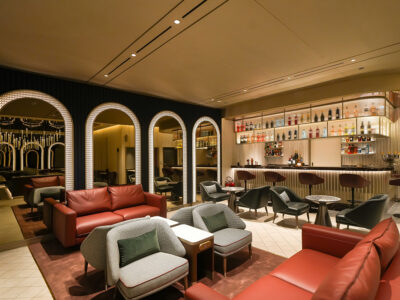Dubai hotel room supply is set to reach 132,000 by the end of 2019, according to a new study by the emirate’s Department of Tourism and Commerce Marketing (Dubai Tourism).
It said Dubai’s hospitality sector is forecast to experience strong, sustained growth over the coming years, with occupied room nights set to reach 35.5 million annually in 2019, representing a 10.2 percent compound annual growth rate (CAGR) over the next 24 months.
Meanwhile, occupancy levels are forecast to remain at 76-78 percent despite growth in capacity, the study said.
It added that the strong competitiveness of the sector is set to continue to be fuelled by increases in Dubai’s growing international overnight visitation and targeted increases in length of stays.
“With concerted efforts to raise awareness in both established and emerging source markets, the duration of travel from new and existing segments are expected to see further growth in the medium term, positively impacting demand for room nights, which is in turn expected to outpace visitor growth over the coming 24-48 months,” it noted.
Helal Saeed Almarri, director general of Dubai Tourism said: “With international and local investors, and operators continuing to actively pursue opportunities in Dubai, we expect to see not only sustained growth in inventory in line with our projected demand for occupied nights, but also further diversification across various asset classifications, to ensure that as a city we are the most globally competitive in providing our visitors the optimal range of options that cater to their preferences across the spectrum of hospitality offerings.”
At the end of 2017, Dubai’s hotel inventory stood at 107,431 rooms, with growth of 4 percent over the course of the year, and occupancy at 78 percent despite capacity increase, thanks to the 6.2% growth in overnight visitors to 15.79 million.
“The robust performance is particularly significant as it came amid challenging economic and political conditions across key source markets, including the volatility impact of fluctuating oil prices and Brexit,” he added.
He said that building on the momentum since 2013, room inventory in the 3 and 4 star categories is projected to continue to grow at 10 percent and 13 percent respectively through to the end of 2019.
This diversification of the hotel sector is part of the strategic focus on widening Dubai’s tourist base, enabling the city to attract larger volumes from new market segments across diversified source markets.
Almarri added: “In order to meet our ambitious targets and appeal to an ever-widening base and personalised preferences of today’s traveller, it is imperative that the hospitality sector is geared to not only meet and satisfy demands, but also to deliver a lasting impression that creates advocates for Dubai, driving repeat visitation as well.
“Ever evolving to incorporate more options for visitors, Dubai’s tourism proposition already has a diverse mix across all key pillars of our proposition, including Retail, Gastronomy, Beach and Marine, Adventure, Family Entertainment, and Events.
“Across all these areas we expect to see a continued evolution to keep our offerings refreshed, renewed and most cutting-edge to ensure that we are not only appealing to new audiences and first-time visitors, but are always top-of-mind for those that have visited before.”








